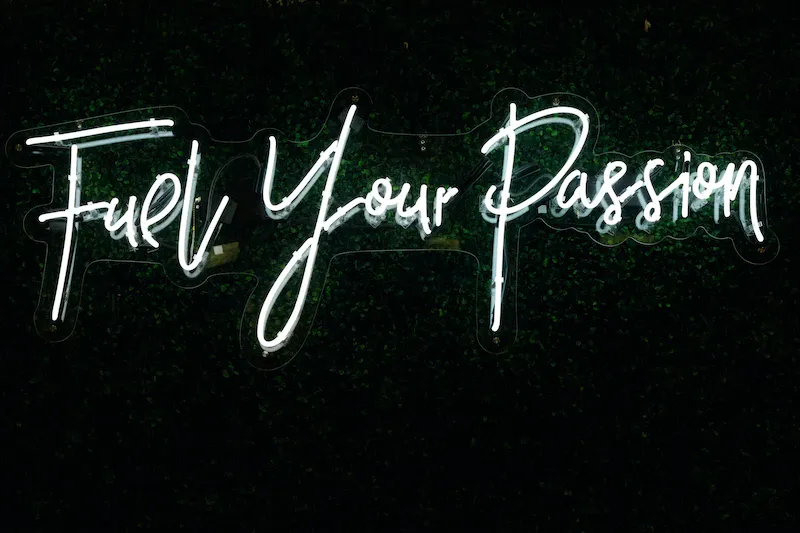The Power of Taking Action: Activating Change.

How Dropping an F-Bomb Can Help You Get What You Want
Have you ever felt stuck in a situation where you just can’t seem to get what you want? You try everything, but nothing seems to work. It can be frustrating, demotivating, and downright annoying. But what if I told you that dropping an F-bomb could help you get what you want?
I know what you’re thinking, “That’s crazy! How could swearing possibly help me?” But hear me out. Sometimes, we need to be bold and assertive to get what we want. And dropping an F-bomb can be just the thing to shake things up and get people to pay attention.
Of course, I’m not suggesting that you go around swearing at everyone you meet. That’s not a good look, and it’s not likely to get you very far. But in certain situations, a well-timed F-bomb can make all the difference.
For example, if you’re in a meeting and you’re not being heard, dropping an F-bomb can get people to sit up and take notice. It shows that you’re serious, and that you’re not willing to be ignored.
Or maybe you’re trying to negotiate a better deal, and the other person isn’t taking you seriously. Dropping an F-bomb can show that you mean business and that you’re not going to settle for less than you deserve.
Now, I’m not saying that dropping an F-bomb is a magic solution that will solve all your problems. But sometimes, a little bit of boldness is what it takes to get what you want. And if that means dropping an F-bomb, then so be it.
In the end, it’s all about finding your own voice and using it to your advantage. So, the next time you’re feeling stuck or unheard, don’t be afraid to drop an F-bomb and let the world know that you mean business.
The Importance of Being Honest About Our Feelings
Have you ever responded with “I’m fine” when someone asked you how you were feeling? Chances are, you have. But what does “fine” really mean?
The truth is, “fine” is often a euphemism for a wide range of emotions, from sadness and anger to anxiety and frustration. By hiding our true feelings behind this seemingly innocuous word, we are doing ourselves a disservice.
Being honest about our emotions is crucial for our mental health and well-being. When we bury our feelings and fail to acknowledge them, we run the risk of letting them fester and grow until they become overwhelming. This can lead to a host of negative consequences, including depression, anxiety, and even physical illness.
On the other hand, when we are honest with ourselves and others about how we are feeling, we give ourselves the opportunity to process those emotions in a healthy way. This might mean talking to a trusted friend or family member, seeking the help of a therapist, or engaging in self-care activities like exercise or meditation.
Of course, being honest about our feelings can be difficult. It requires vulnerability and a willingness to be open and authentic with others. But the benefits of doing so are immeasurable. By allowing ourselves to be vulnerable and honest, we create deeper, more meaningful connections with those around us. We also give ourselves the chance to grow and learn from our experiences.
So the next time someone asks how you are feeling, resist the urge to respond with “fine.” Instead, take a deep breath and be honest about what’s going on inside. Your mental health will thank you for it.
Discovering Your Unique Purpose and Ideas
We often hear that we should hug our uniqueness and follow our own path, but it’s not always easy to know what that means or how to do it. It can be tempting to compare ourselves to others and think that our ideas aren’t good enough or that we don’t have a special purpose.
But the truth is that each of us is truly unique. In fact, the odds of being born with our specific DNA and life experiences are about one in 400 trillion. That’s something to celebrate!
So how can we tap into our unique purpose and ideas? It starts with getting to know ourselves and what makes us tick. What are our passions, strengths, and values? What experiences have shaped us and what do we want to contribute to the world?
Once we have a better understanding of ourselves, we can start to explore different avenues and find opportunities that align with our purpose and ideas. It may take some trial and error, but that’s okay. It’s all part of the journey.
It’s also important to remember that our purpose and ideas may evolve over time. What we’re passionate about today may not be the same as what we’re passionate about in five years. And that’s okay too. The important thing is to stay true to ourselves and keep exploring.
So if you’re feeling stuck or unsure about your purpose and ideas, remember that you are truly one-of-a-kind. Take some time to reflect on what makes you unique and what you want to contribute to the world. Hug your individuality and keep moving forward with confidence.
The Science of Activating Change: Why You’ll Never “Feel” Like It
Change is hard. Whether it’s changing a habit or making a big life decision, it can be difficult to get started. We often think that we need to feel motivated or inspired to make a change, but the truth is, that feeling may never come.
Research shows that motivation doesn’t actually lead to action. In fact, action leads to motivation. By taking small steps towards your goal, even if you don’t feel like it, you can create a positive feedback loop that will motivate you to keep going.
Another reason we may struggle to make changes is because of our brain’s natural resistance to change. Our brains are wired to seek out comfort and familiarity, so any change, even if it’s positive, can feel threatening.
But there are ways to work with our brain’s natural tendencies. One approach is to break down your goal into small, manageable steps. This can make the change feel less overwhelming and more achievable.
It’s also important to recognize that setbacks are a natural part of the change process. Rather than getting discouraged and giving up, use setbacks as an opportunity to learn and adjust your approach.
Remember, change is a process, not an event. It takes time, effort, and perseverance. But by taking action, even when you don’t feel like it, and being kind to yourself when setbacks occur, you can activate the science of change and make progress towards your goals.
Parenting Yourself to Success: Tips for Navigating Adulthood
As we grow up and become adults, we often find ourselves facing new challenges that we weren’t necessarily prepared for. We’re expected to manage our own finances, make responsible decisions, and take care of ourselves in a variety of ways. It can be overwhelming, and sometimes it feels like we’re still children trying to figure it all out.
But there’s a solution to this problem: parenting yourself. This may sound strange, but it’s really just a way of taking care of yourself in the same way that a parent would take care of a child.
So, how do you parent yourself to success? It starts with setting goals and creating structure in your life. Create a schedule for yourself, plan your meals, and set aside time for exercise and self-care. When you have a plan in place, it’s easier to stay on track and feel in control.
Another important aspect of parenting yourself is being kind and compassionate with yourself. This means not beating yourself up over mistakes or setbacks, but rather treating yourself with the same understanding and forgiveness that a parent would show to a child.
It’s also important to seek out resources and support when you need it. This might mean reaching out to friends and family for advice, or seeking out professional help when you’re struggling with a particular issue.
Parenting yourself to success may seem daunting at first, but it’s really just a matter of taking care of yourself in the same way that a parent would take care of a child. By setting goals, creating structure, being kind to yourself, and seeking out support, you can navigate the challenges of adulthood with confidence and success.
How to Use the Emergency Brake on Your Autopilot Brain
Have you ever arrived at your destination without really remembering the journey? This happens to all of us because our brains prefer to be on autopilot. It’s a survival mechanism that helps us conserve mental energy. However, relying on autopilot can lead to missed opportunities and a lack of personal growth.
The good news is that you can learn to use the emergency brake on your autopilot brain. It’s all about being mindful and present in the moment. By paying attention to your thoughts and actions, you can break free from your habits and create new ones that serve your goals.
One way to do this is by setting intentions for your day. Take a few minutes each morning to visualize what you want to achieve and how you want to feel. This can help you stay focused and motivated throughout the day.
Another strategy is to introduce novelty into your routine. When you do something new or different, it forces your brain to pay attention and engage with the present moment. This can help break the cycle of autopilot and spark new ideas and perspectives.
Remember, your brain is wired to prefer autopilot, but you have the power to override it. By being mindful and intentional, you can use the emergency brake to steer your life in the direction you want.
The Danger of Routine: How to Break Free from Boredom and Achieve Your Goals
Have you ever felt like you were stuck in a rut, going through the same motions day after day? If so, you’re not alone. Many people fall into the trap of routine, which can be comfortable but ultimately leads to boredom and stagnation.
It’s easy to see why routine can be so alluring. When we have a set schedule and predictable tasks, we don’t have to think too much about what we’re doing. Our brains can go on autopilot, conserving energy and minimizing stress. But while this might be convenient in the short term, it can also hold us back from reaching our full potential.
The danger of routine is that it can become a self-fulfilling prophecy. If we do the same things day after day, we’re likely to get the same results. We might be able to maintain our current level of success, but we’re unlikely to achieve anything new or exciting. To break free from this cycle, we need to challenge ourselves and try new things.
So how can we do this? The first step is to recognize when we’re in a rut. If we find ourselves going through the motions without feeling engaged or motivated, it’s time to shake things up. We can start small by making small changes to our daily routine, such as taking a different route to work or trying a new hobby.
Another way to break free from routine is to set new goals and pursue them with passion. When we have a clear vision of what we want to achieve, we’re more likely to stay motivated and focused. It’s important to set achievable goals that challenge us but are still within our reach.
In summary, routine can be both comforting and dangerous. While it might be tempting to stay in our comfort zone, doing so can prevent us from achieving our full potential. By recognizing when we’re in a rut and challenging ourselves to try new things and pursue new goals, we can break free from boredom and live a more fulfilling life.
The Power of Force: Taking Action When Motivation Isn’t Enough
Do you ever find yourself lacking the motivation to complete a task? You know what needs to be done, but you just can’t seem to muster up the energy or drive to get it done? It happens to the best of us. The truth is, motivation is not always reliable, and relying solely on motivation to accomplish our goals can lead to disappointment and frustration.
That’s where the power of force comes in. Force is the ability to push through and take action even when you don’t feel like it. It’s the ability to use sheer willpower to get things done, regardless of how you feel. While motivation is important, force can be even more powerful when it comes to achieving your goals.
So how can you tap into the power of force? It starts with setting clear, achievable goals and breaking them down into smaller, manageable tasks. When you have a plan in place, it’s easier to push through and take action, even when you’re not feeling motivated.
Another way to tap into the power of force is to create accountability for yourself. This could be through setting deadlines or sharing your goals with someone who can hold you accountable. When you know that someone is counting on you to follow through, it can be a powerful motivator to push through and take action.
Finally, it’s important to recognize that taking action, even when you don’t feel like it, is a skill that can be developed. The more you practice pushing through and using force to take action, the easier it becomes. Over time, you may find that relying on force becomes second nature, and you’re able to accomplish more than you ever thought possible.
So the next time you’re lacking motivation, remember the power of force. Set clear goals, create accountability, and practice pushing through. You might be surprised at just how much you’re capable of accomplishing.
Conclusion
In conclusion, the topics covered in these video scripts are highly relevant to our daily lives. From overcoming fear and self-doubt to managing our emotions, these topics can help us grow and become better versions of ourselves. It is important to note that change is not easy and may require effort and persistence, but with the right mindset and tools, it is achievable. Whether it’s hugging our uniqueness, parenting ourselves, or taking action when motivation isn’t enough, we can all benefit from learning and applying these insights to our lives. So, let’s continue to challenge ourselves, break free from routine, and activate change to reach our full potential.


